Alzheimer’s disease (AD) is a black hole—a force that consumes memory, independence, health, dignity, time, and energy, pulling everything beyond the point of return.
The toll is not limited to patients. Since the late 1980s, pharmaceutical companies, scientists, and investors have poured staggering resources into the search for new “anti-Alzheimer’s” drugs. Private expenditures for clinical-stage Alzheimer’s disease research since 1995 exceed $42 billion (Cummings, 2022).
And yet, the result has been a near 100% failure rate. Even the newest drugs offer only delay, not prevention or reversal, for the 7.2 million Americans living with Alzheimer’s.
That was the reality—until August 6, 2025.
A Breakthrough from the Past
On that day, Nature published Lithium Deficiency and the Onset of Alzheimer’s Disease (Aron et al., 2025), a landmark paper from researchers in Boston and Chicago. Their focus: not a new synthetic compound, but one of the oldest elements in the universe.
Lithium—a 13.8-billion-year-old mineral found in the earth’s crust, oceans, fresh water, and food chain (Xu, 2019; Szklarska, 2019). A trace nutrient present in most vertebrate tissue. A medicine valued since ancient Greece for stabilizing mood (Galen; Cade, 1949; Won, 2017).
Lithium’s relationship to Alzheimer’s isn’t new. Studies of bipolar patients, who often take lithium, and research on naturally occurring lithium in drinking water have consistently found lower rates of Alzheimer’s in populations with higher exposure (Fraiha-Pegado, 2024; Chen, 2022; Fajardo, 2018). Clinical trials—at both high pharmaceutical doses and low nutritional doses—have demonstrated cognitive protection, even in patients with early decline (Damiano, 2023; Forlenza, 2019; Nunes, 2013).
Still, mainstream medicine has met these results with skepticism, largely due to lithium’s reputation as a “drug” with side effects at high doses—ignoring its role as an essential nutrient at low doses.
The Nature study challenges that skepticism head-on, suggesting lithium deficiency is not just associated with Alzheimer’s, but may contribute directly to its onset.
Lithium Deficiency in MCI and Alzheimer’s Disease
The researchers first measured lithium levels in the brains and blood of patients with Mild Cognitive Impairment (MCI) and Alzheimer’s. Blood levels were normal, but brain tissue told another story: lithium levels were significantly lower in both MCI and Alzheimer’s patients compared to controls (Aron et al., 2025).
They then examined amyloid-beta (Aβ) plaques—the toxic protein deposits central to Alzheimer’s disease—and found significant amounts of lithium trapped within them. The more severe the disease, the more lithium was sequestered, leaving less available for normal brain function.
This was confirmed in animal models: transgenic mice engineered to develop Aβ deposits showed 3–4 times more Aβ-bound lithium and marked deficits of free lithium in the rest of the brain.
The takeaway? Alzheimer’s pathology binds and depletes lithium in the brain.
Lithium Deficiency as Cause and Effect
The team also tested the reverse question—can lithium deficiency cause Alzheimer’s-like changes? In mice fed lithium-deficient diets:
- Brain lithium dropped by ~50%.
- Aβ plaques and toxic tau proteins increased dramatically.
- Cognitive function and memory declined.
This confirmed lithium deficiency is both consequence and contributor to Alzheimer’s disease—chicken and egg.
How Lithium Deficiency Damages the Brain
Using genomic analysis, the researchers found lithium deficiency disrupted gene expression in nearly every major brain cell type, including neurons, astrocytes, and microglia. It also increased activity of GSK-3β, an enzyme linked to plaque and tangle formation, and reduced myelination, synaptic signaling, and overall neuronal health.
Crucially, these effects were seen in both mouse and human brain samples—reinforcing the role of lithium in maintaining healthy brain function.
Restoring Lithium: Nutritional vs. Pharmaceutical
Finally, the study compared two forms of lithium supplementation:
- Lithium carbonate (LiC) — the pharmaceutical form used in psychiatry.
- Lithium orotate (LiO) — a low-dose, nutritional supplement form.
Both increased brain lithium, but with a key difference: LiC was largely trapped by Aβ plaques, leaving little free lithium. LiO, in contrast, was far less sequestered and significantly increased free lithium levels in the brain.
LiO supplementation in mice:
- Reduced plaque burden by nearly 70%.
- Dramatically lowered tau levels.
- In genetically engineered mice, nearly prevented plaque and tangle formation.
- Preserved memory and neuron structure in aging mice.
All without negative effects on kidney or thyroid function—addressing one of the main concerns about lithium safety.
The Bigger Picture
Lithium is not just a medication—it’s an essential micro-nutrient. Deficiency has been linked to irritability, mood instability, suicide risk, and now, compellingly, Alzheimer’s disease.
Aron et al.’s findings prove:
- It doesn’t take much — low, nutritional doses can profoundly protect the brain.
- Form matters — lithium orotate outperforms lithium carbonate in neuroprotection and Alzheimer’s prevention.
Why This Matters for Mental Health
For decades, I have written and advocated for lithium’s role in both psychiatric and neurodegenerative disorders—witnessing its ability to stabilize mood, prevent suicide, ease irritability, and preserve cognitive health.
The resistance from mainstream psychiatry and neurology has been frustrating—especially in light of thousands of peer-reviewed studies demonstrating its value. But with the Nature study, the conversation has changed.
As Dr. Bruce Yankner of Harvard noted:
“What impresses me most about lithium is the widespread effect it has on the various manifestations of Alzheimer’s. I really have not seen anything quite like it.”
And Dr. Ashley Bush of the University of Melbourne added:
“This is groundbreaking… [Lithium] targets all the major pathologies of concern in the disease.”
It is my hope that we are finally entering an era where lithium is recognized not as an alternative, but as an essential tool in mental and cognitive health—capable not just of slowing decline, but preventing disease altogether.
From an ancient element, a new hope.
Read more about nutritional lithium for mental health by Dr. James Greenblatt.


